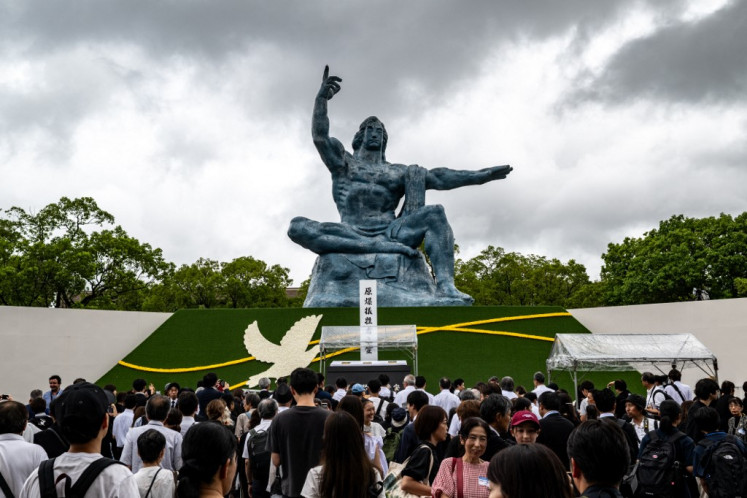Popular Reads
Top Results
Can't find what you're looking for?
View all search resultsPopular Reads
Top Results
Can't find what you're looking for?
View all search resultsGrounding the epicentrum of growth: Fostering an MSME-driven ASEAN economic outlook
The prospect of transforming ASEAN into a global production center is plausible, especially because of the exceptional competitiveness of regional commodities, particularly in the food and fisheries sectors.
Change text size
Gift Premium Articles
to Anyone
T
he recent gathering of ASEAN micro, small and medium enterprise (MSME) ministers on the sidelines of the sixth ASEAN Inclusive Business Summit in Bali marked a significant milestone as the region pledged unwavering support for the pivotal role of MSMEs in fostering regional growth.
These deliberations transpired during the Inaugural High-Level Ministerial Meeting on Inclusive Business, which underlined the gravity of the occasion.
MSMEs are an important part of the foundation of the ASEAN economic landscape and there are a staggering 71 million such enterprises in the region. Nevertheless, pathways for meaningful participation among high-level officials within the ASEAN framework have remained limited. Moreover, the availability of affirmative policies to galvanize the expansion of MSMEs remains constrained.
These enterprises face formidable challenges, including predatory pricing and competition from outside of ASEAN. These issues are particularly pronounced in such a vast regional market that encompasses 679 million people, approximately 8 percent of the global population.
As the steward of the High-Level Ministerial Meeting, Indonesia reiterated its resolute commitment to standing alongside MSMEs, cementing their status as paramount catalysts for the bloc’s economic resilience. Two decades ago, ASEAN leaders enshrined their dedication to equitable economic advancement within the Bali Concord II, a document that shaped the ASEAN Economic Community.
Given that MSMEs account for over 97 percent of the business establishments in the region, provide approximately 85 percent of the jobs and comprise 44.8 percent of gross domestic product (GDP), the formulation of proactive policies is paramount.
The urgency to create such policies stems from the need to empower these entities to scale up and effectively compete against their larger industry counterparts. Such an undertaking bears crucial significance, especially when considering that intra-ASEAN trade in goods represents only 27 percent of extra-ASEAN trade as of 2021. To achieve this, ASEAN must implement a regional import substitution policy.



















